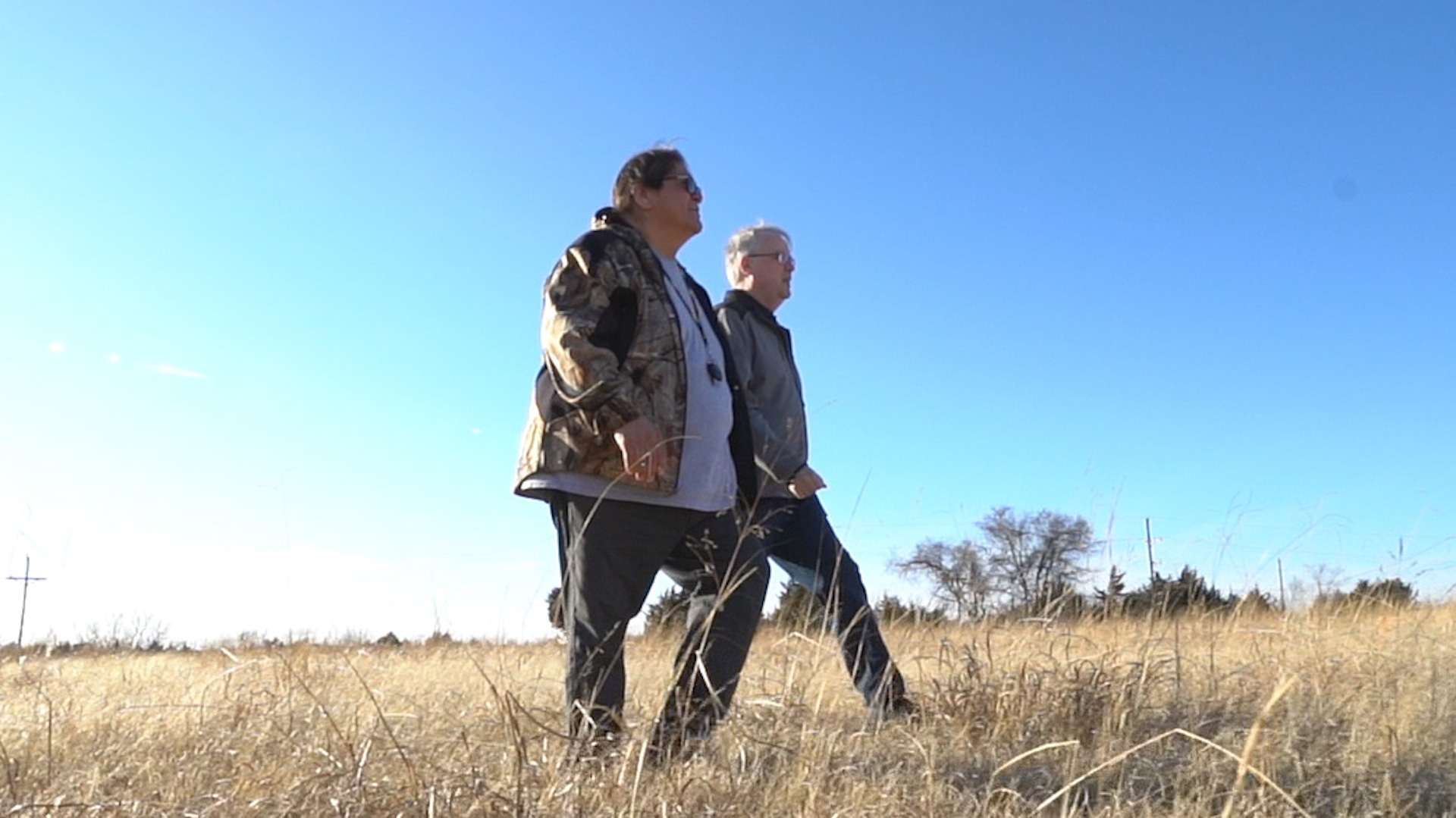| | | | | | | Presented By Enbridge | | | | Axios What's Next | | By Alex Fitzpatrick, Jennifer A. Kingson and Joann Muller · Oct 13, 2022 | | Private pilots spend a lot of time looking for excuses to go flying — and some have landed on using their skills to help people access abortion care, Alex reports today. Today's newsletter is 1,141 words ... 4½ minutes. | | | | | | 1 big thing: Pilots volunteer for abortion flights |  | | | Illustration: Maura Losch/Axios | | | | A new nonprofit is connecting pilots of small airplanes with people seeking access to abortion and gender-affirming care, Alex Fitzpatrick reports. Why it matters: As states such as Texas, Indiana and West Virginia pass new laws tightly restricting abortion access and other forms of care, residents in need of treatment are often forced to travel elsewhere. - But car, bus or commercial airplane travel can be expensive, time-consuming and risky for some, making general aviation a better choice in certain cases.
Details: The group, Elevated Access, launched in April of this year, and nearly 900 pilots have at least expressed interest in taking part, says the group's spokesperson, who requested anonymity given the sensitivities surrounding the project. - Passengers are referred by other organizations, such as health care providers.
- Pilots donate their time and expertise, and cover operational costs like fuel and rental fees (if they don't own their own aircraft).
- They're vetted and required to have at least 200 hours of pilot-in-command time.
- They essentially function as Uber drivers — they're told where a person needs to go but not the specific reason for the trip. "We're the matchmaker, if you will, putting our pilots together with the patients," says the spokesperson.
Between the lines: Flying in a single-engine Cessna or Piper is typically far more discreet than using commercial aviation — passengers (who can be undocumented) don't even need to show ID. - Small planes are also better able to make use of the thousands of general aviation airports dotting the country, meaning people can avoid trekking to busy urban hubs to catch their flight.
Of note: The group's pilots could be exposing themselves to legal risk, given that some new state laws have "vigilante clauses" that could allow private citizens to sue people who allegedly aid those seeking abortions. Harassment could also be an issue. - The group tries to protect pilots by keeping their info as anonymous as possible.
- "We know who they are, but we don't reveal their names and addresses and states and tail numbers," the spokesperson says, referring to airplanes' registration numbers.
Yes, but: Flying — especially in a small plane — isn't always the most efficient way to get from A to B and back again, so in some cases, driving really does make more sense. Be smart: Private pilots are often looking for a reason to fly — that is, other than the "$100 hamburger," a joke about spending a bunch of money to go to a nearby airport with a decent restaurant. - Other long-standing organizations, like Angel Flight groups, connect pilots with people in need of medical care more generally — or, in the case of groups like Pilots N Paws, help pilots find shelter animals that need to be relocated.
The big picture: As some states make it increasingly hard for people to access abortion and similar care, all sorts of volunteer efforts are cropping up to make it possible for people to get the services they need. Share this story. |     | | | | | | 2. Cities "cautiously optimistic" about finances |  | | | Illustration: Brendan Lynch/Axios | | | | Federal funds "helped save American cities" after the COVID-19 pandemic sapped their tax revenue, but inflation is tempering their financial health, the National League of Cities (NLC) said in a Wednesday report, Jennifer A. Kingson writes. Why it matters: The American Rescue Plan Act (ARPA) and the new infrastructure law have been political footballs, but U.S. cities would be in a recession without them, according to the prominent lobby group. - An annual survey of municipal finance officers paints an "optimistic picture," said Clarence Anthony, CEO and executive director of the NLC.
- "Municipal governments are enjoying a much stronger revenue stream and are feeling confident about their abilities to finance public services and resources" in 2022 and beyond, he said.
- But "unusually high inflation is putting a lot of pressure on cities' budgets," he added.
Driving the news: The National League of Cities issued its 37th annual report on the fiscal health of U.S. cities, and the gist is that they're in good shape. - "They've rebounded financially from the pandemic, thanks largely to ARPA funds," said Farhad Omeyr, an NLC program director and author of the City Fiscal Conditions report.
- But high gas and energy prices are a big concern, as is the cost of borrowing money.
- And "abnormally high inflation rates have nearly canceled out the tax revenues these governments gained in 2021," the report said.
What they're saying: "The flexibility of the ARPA dollars was really helpful," said Andrew Zoeller, finance director for Billings, Montana. - Billings used its ARPA funds to upgrade its 911 dispatch system, while other communities used the money to pay firefighter and police salaries, address housing insecurity, assist local businesses, etc.
What's next: Cities are preparing to apply for grants under the $1.2 trillion infrastructure law. Share this story. |     | | | | | | 3. Extreme weather gets more common — and costlier |  Data: Climate Central, NOAA National Centers for Environmental Information; Note: Includes damages that equal or exceed $1 billion (adjusted for 2022 inflation). Average is from 1980-2022; Chart: Axios Visuals Hurricanes Fiona and Ian were the latest in a torrent of 15 billion-dollar weather and climate disasters to strike the U.S. so far this year, according to new NOAA data, Axios' Ben Geman and Andrew Freedman report. The big picture: The cost and frequency of extreme weather and climate disasters have increased in recent years. - According to Climate Central, a research and communications nonprofit, the frequency of billion-dollar weather disasters is now about one event every 18 days.
- This compares to 82 days between such disasters in the 1980s.
Zoom in: Early estimates indicate Ian was one of the costliest storms in U.S. history, with insured losses of $53 billion-$74 billion. Between the lines: Much of the increase in damage costs is related to population growth in vulnerable areas, such as the hurricane-prone Gulf Coast. Share this story. |     | | | | | | A message from Enbridge | | Understanding the past helps us embrace the future | | |  | | | | We believe business can play a critical role in advancing Indigenous reconciliation. - Acknowledging the truth and learning from Indigenous history paves the way for reconciliation and a more equitable tomorrow.
Learn more about Enbridge's journey and commitment to building a better future. | | | | | | 4. Honda plans $3.5 billion Ohio EV plant |  | | | A preview of Honda's upcoming Prologue battery-electric SUV. Photo courtesy of Honda | | | | Ohio is poised to become Honda's North American electric vehicle (EV) hub, Axios' Alissa Widman Neese reports. Driving the news: The Japanese automaker is building a $3.5 billion battery factory about 40 miles southwest of Columbus. - The new plant is expected to employ 2,200 workers.
- Honda also plans to invest $700 million in its three existing Ohio plants to ready them for EV-related production.
The big picture: Honda's news follows waves of U.S. battery and EV plant announcements as automakers try to establish a domestic supply chain, spurred on by the new infrastructure law's incentives. Read the rest. |     | | | | | | 5. One fun thing: Space bonk |  | | | Debris blasted off of the asteroid Dimorphos as seen by the Hubble Space Telescope. Photo: NASA/ESA/STScI/Hubble | | | | A NASA mission to change the path of a deep space asteroid was successful, Axios' Miriam Kramer reports. Why it matters: An asteroid impact could be devastating to life on Earth — but detection and deflection can help humanity defend itself. Catch up quick: NASA's Double Asteroid Redirection Test (DART) slammed into the small asteroid moonlet Dimorphos on Sept. 26 in a bid to change its path around the larger asteroid Didymos. - The impact shortened Dimorphos' orbit by about 32 minutes, effectively taking it off its normal course.
- It took a couple weeks for scientists to gather enough data to figure out just how much the moonlet's orbit had changed.
Read the rest. |     | | | | | | A message from Enbridge | | Building bridges and progress together | | |  | | | | Economic equity, jobs, education and environmental stewardship are a few ways Enbridge is working with Indigenous peoples on the energy transition. Why it's important: We can go further together. Read more about our Indigenous Reconciliation Action Plan. | | | | A hearty thanks to What's Next copy editor Amy Stern. Was this email forwarded to you? Get your daily dose of What's Next by signing up here for our free newsletter. |  | | Are you a fan of this email format? It's called Smart Brevity®. Over 300 orgs use it — in a tool called Axios HQ — to drive productivity with clearer workplace communications. | | | | | | Axios thanks our partners for supporting our newsletters. If you're interested in advertising, learn more here.
Sponsorship has no influence on editorial content. Axios, 3100 Clarendon Blvd, Arlington VA 22201 | | | You received this email because you signed up for newsletters from Axios.
Change your preferences or unsubscribe here. | | | Was this email forwarded to you?
Sign up now to get Axios in your inbox. | | | | Follow Axios on social media:    | | | | | |










No comments:
Post a Comment